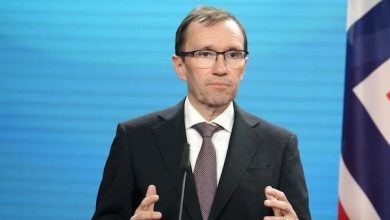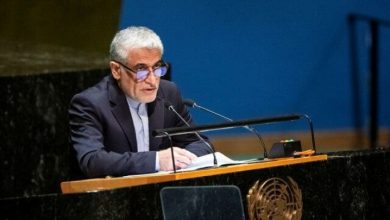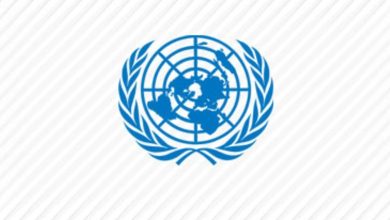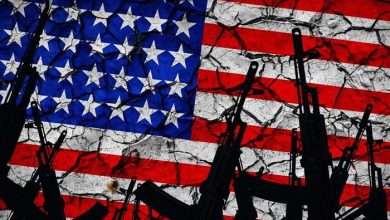
Coexistence of media and terrorism side-event was held during 46th session of the Human Rights Council.
The Association for Defending Victims of Terrorism organized a side-event on “Coexistence of Media and Terrorism” during 46th session of the Human Rights Council. The side-event was held in cooperation with Media and Nations Cultural Center, Rencontre africaine pour la défense des droits de l’homme (RADDHO), Veterans Today, Geopolitics Alert and attended by professors, media activists, and families of the martyrs of terrorism both in-person and on webinar platform on 17 March 2021.
Prevent terrorist groups from being granted asylum by disclosing their nature
At the beginning of the meeting, Dr. Spanji, a faculty member of the Institute of Humanities and Cultural Studies said on the coexistence of media and terrorism, “Our world today is the world of media and media such as Twitter and Facebook, etc. have attracted different groups. Terrorists are also one of the groups in a society that use these media to convey their message. The media control the reality of the outside world to individuals and they interpret the world for us. The media gather facts and presents values to us. That is why in today’s world, the media are the representatives of external reality. Media terrorism is a psychological weapon to transmit fear to the people. Terrorists seek fame and a media give them a media gift when they interview the terrorists.”
He added, “Defending the rights of victims of terrorism is the obligation of all countries and that the international community must combat terrorism. Human rights organizations must do this by establishing a global media network. Creating this network and revealing the true nature of terrorist groups and preventing the granting of asylum to terrorist criminals can be a few measures for this purpose. Also, media coverage of terrorism should be based on political and military responses to terrorism.
The War You Don’t See documentary by John Pilger is about the Western media which deceive public opinion
Afterwards, human rights activist Dr. Mohammad Mahdi Moqadas, in his analysis of John Pilger’s documentary The War You Don’t See said: “John Pilger’s documentary is about the media networks in the West which deceive public opinion. One example of media deception was that in the attack on a Turkish ship carrying humanitarian aid to the people of Gaza, the Western media reported the attack of Israel on the ship in a way that as if the passengers on the ship had attacked the Israeli soldiers.”
“Also, in this documentary, Mr. David Rose, who advocated for the war in The Observer, says that he was fed with a lot of lies, all of which were given to him by complex misinformation campaigns. The documentary also features a report and photographs by an independent American journalist showing images of mass graves that were never shown in the mainstream media. In Palestine, too, the killing and humiliation of non-Western journalists by Israelis is reported seldom, Mr. Moqadas Added.”
He stated, “The documentary points out that the evidence about Iran’s nuclear weapons is as credible as Tony Blair’s claims about weapons of mass destruction in Iraq. According to BBC former correspondent Rageh Omaar, there is a special system for manipulating people’s minds. For example, it was reported 17 times that the city of Basra had fallen before it actually fell. In the end, John Pilger concludes that the lives of countless men, women, and children depend on the truth, or that their blood depends on people who tell the right news.”
If we do not think over, it will be too late
Next speaker, Dr. Mahdi Motaharnia, a professor of political science and expert on political issues, spoke on about the smart control of public opinion.
He said, “In today’s world, we must look to the future. For that, we have to pay attention to the propulsion. Technology and media are two of the propulsion. In 2010, I introduced a concept called the glass world, in which in the future we have the death of distances and the collapse of walls and spatial and temporal distances. Today, we are talking about free thought and belief, and the media are a propulsion force that makes optimal use of technology, such as Elon Musk and its global Internet.
Dr. Mahdi Motaharnia also said, “In today’s world and in a networked society, people are gaining new identities, and we are facing a challenge called media and terrorism. In every challenge, there are both opportunities and threats, and we must use the opportunities of the media to counter the threats of terrorism. If we do not think over, it will be too late.”
In Yemen, the media have become a tool for serving Saudi Arabia state terrorism
Ms. Randi Nord, founder and editor-in-chief of the Geopolitics Alert website spoke at a meeting on distortion of the media about the war on Yemen and al Qaeda. She said, “I have been talking and writing about the media and Yemen and the war for many years, and now I can talk about these issues in your meeting. Violence against civilians and non-combatants, as well as children to achieve a political goal or to intimidate is generally considered a terrorist act.
He continued, it is the same in Yemen. Citizens’ homes are attacked, civil society buildings and refugee camps, weddings and markets are attacked. Many infrastructures have been destroyed. There are secret places for torturing and raping women, and it can be said that the Saudi government has started terrorist acts.”
She continued, “In Yemen, the media not only ignores and downplays state terrorism, but also becomes a tool for serving the goals of state terrorist acts.” Beyond Saudi state terrorism, the media hide al-Qaeda in Yemen, which links to the Saudi government. The terrorist group receives American weapons and have positions in the government, and they have established terrorist training camps in Yemen and carry out suicide attacks for Saudi Arabia’s interests. Areas controlled by groups affiliated with Saudi Arabia are more insecure than other areas in Yemen.
“What I said is completely different from what the media are saying, because they not only agree with this kind of state terrorism, but they also agree with the political goals behind this terrorism. Of course, there are reports in some media about the targeting of civilians or the existence of secret prisons in Yemen, but these reports are not widely covered. Finally, it must be said that unfortunately the media have control over the mainstream of the narratives.” Ms. Nord concluded.
The media are doing what terrorists do by dehumanizing the victims
In another part of the side-event on the coexistence of media and terrorism, Dr. Mohammad Mohajerani, an international security researcher, said about the innocence lost by the media and terrorism, “Unfortunately, it is too late for addressing the issue of media and terrorism. When we talk about the nexus between terrorism and the media, when we talk about terrorist news, we only look at the numbers, but we do not pay any attention to the lives that have been lost. And victims become figures unless they are important to the media on the basis of religion or race. For example, when thousands of people are killed in Afghanistan, they are ignored and become silent victims. The media are doing what terrorists do by dehumanizing the victims.
He added that media techniques are also used in Yemen. They change the truth about the attack on Yemen and do not say anything about the terrorist nature of these attacks or the war crimes that took place in that country, and they propagated it as a punishment for the Yemeni people.
Many media outlets, such as CNN and Fox News, have been founded to justify wars
Then, Dr. Mohammad Sajedi, an expert on international affairs regarding the concealment of truth and the repetition of misinformation in the media, said: “The role of the media in laying the groundwork for terrorism has been less mentioned. There is a point and that is terrorism uses the media. We have to go back and see that many media outlets were founded after the wars to justify them. Like CNN after the war in Lebanon and Fox News after the invasion of Iraq.”
Dr. Sajedi added that, “There are basically several steps to defeat nations. First there is dialogue, and if it fails, it is bribery is considered and then threats, and this is how wars are a continuation of politics in peacetime. Even now, a tool is used as a sanction, and if it fails, they start assassination, and we will see the signs of it in the assassination of ordinary people and the scientists of our country. We live in a world where, if we neglect for a moment, we will fall behind for years and today the media hav become very important.” He concluded.
Those whose job is to accurately record events should be the voice of the people, not the powers
Yakub Aslan, one of Turkey’s media executives said about the “The War You Don’t See”, “This documentary is a collection of confessions that were filmed before the recent disasters in the region. Eleven years have passed since the confession was released and we have witnessed hundreds of thousands of deaths around the world, especially in our own region. It can be said that the goals and tools of crises have not changed and only the way of using those scenarios has changed.”
He added, “Some countries are present in Syria through affiliated forces. We saw that the media were among of the strongest weapons in this new strategy, and chemical attacks were prepared in the studios. We are in an era where journalists who want to write the truth face many difficulties in obtaining accurate information. I want to end my speech with the last sentence of the documentary “The War You Don’t See”, “Those whose job it is to accurately record events should be the voice of the people, not the powers.”
The hypocrisy of the media in the West is that they serve terrorism
Next speaker of the coexistence of terrorism side-event was Dr. Nejandi Manesh, Professor of International Law at Allameh Tabataba’i University. He spoke about the mythology of terrorism of the Western media, especially in the Netherlands. He said, “The media play an important role and can be used as a propaganda tool for war crimes such as those of the Nazis and what happened in Rwanda. The media are not a goal but they are tools. The media can be used to change reality. I want to talk about the case of Ali Motamed and how the news was covered in the Netherlands.”
He added, “The media portrayed Mohammad Reza Kolahi Samadi as an immigrant and refugee while he was a terrorist of disaster of Hafte Tir bombing. He is accused of carrying out a “deadly attack” in 1981, but we should know that not every deadly attack is a terrorist act. In another news, Kolahi is known a member of an important Shiite and anti-Iranian opposition group who was involved in a bombing; in another news, he is introduced as a refugee and a technician; and in the Guardian, an he is known as an electrician an not a terrorist.
The professor of international law further stated, “The media can turn a victim into a murderer and a murderer into a victim. The media take into account the interests of the terrorists, and any media outlet, government, or institution that tells the first story wins, and the rest of the stories are forgotten. Therefore, the hypocrisy of the media in the West is that they serve terrorism. Many of the terrorist groups that attack Iran are based in Europe but are they are not considered terrorists by the European media. Based on minimal definitions of terrorism, we can say that those in Europe are terrorist groups. From the perspective of the Western media, if a group brutally kills people but serves the interests of Western governments, it is not considered a terrorist group. This is also the case with human rights. For them ISIS is good in Syria, but it is an evil group wherever they are detrimental to the U.S. interests. These indicate how the media invert reality.”
Media coverage of terrorist attacks in Western countries are treated differently compared to those in developing countries
Mr. Biro Diawara, programs director of Rencontre africaine pour la défense des droits de l’homme (RADDHO) was the next speaker who discussed human rights which only monitor special people. He emphasized, “As you know, modern terrorism is media terrorism. The media cover violent terrorist acts and try to attract the most attention around the world by covering terrorist incidents.
He continued, “The problem is that developing countries are victims of the Western media, and media coverage of terrorist incidents in Western countries is different from coverage of terrorist attacks in developing countries, such as attacks carried out by Boko Haram terrorist group in African countries.”
In the last years, there is no movie or documentary about my Martyred father
At the end of session Ms. Tahereh NasrAbadi, daughter of Martyr Mohammad Ali NasrAbadi, talked about his father Martyrdom. She said, my father Martyred brutally in 1982 in front of his grocery. Those who martyred by terrorists are were defenseless but ignoring the aftermath of terrorist attacks on society is much worse than that ignoring. In the last years, there is no movie or documentary about my Martyred father and we see that there are many hours of programs for covering crimes of those criminals.





